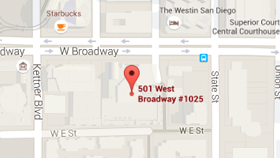Bankruptcy Newsletter
Impact of Bankruptcy on Utility Services
Filing for bankruptcy automatically triggers the “automatic stay,” which generally prevents creditors from pursuing claims against debtors to collect on the debts they are owed. One form of relief that bankruptcy can provide to a debtor is to prevent utility companies from demanding payment for past utility bills (i.e., for utility services provided before the date of the bankruptcy petition), as a condition for providing future services.
Further, upon filing for bankruptcy, debtors can often restore utility services that have been shut off. The U.S. Bankruptcy Code prohibits utility companies from discriminating against debtors who have filed a bankruptcy petition by terminating service or refusing to provide future service.
Essential Utilities
Public utilities are services that are typically considered essential and important to public welfare, including any company that produces, sells or delivers gas, electricity, heating, power or water. Given their importance, most public utilities in the United States are privately owned and subject to close government regulation. Given the importance of public utilities to public welfare, filing for bankruptcy will usually discharge or “wipe out” past debt owed to utility companies, allowing debtors a “fresh start” from the date the bankruptcy petition was filed.
Likewise, utility debts are generally considered “essential debts,” and should be given top priority by debtors who have filed for bankruptcy. Although utility companies are prohibited from shutting off the services of an individual who has filed for bankruptcy, debtors are typically held responsible for paying new utility debts incurred after filing for bankruptcy. Accordingly, debtors should make whatever utility payments are possible upon filing for bankruptcy in order to maintain a minimal standard of living.
Utility Companies Recognized as Public Monopolies
The law recognizes utility companies as “public monopolies.” Due to the nature of the service provided, utility companies often require substantial capital investment to meet peak demands, and often have no competition in the marketplace. As such, utility companies are prohibited from forcing debtors to become current on outstanding bills as a condition of providing future services.
Utilities that are not generally considered monopolies include cable television, internet and cell phone services. Because consumers can obtain such services from multiple service providers, these types of services are not typically protected by the automatic stay in bankruptcy.
Prohibiting Discrimination Against Debtors
Section 366 of the Bankruptcy Code provides that “a utility may not alter, refuse, or discontinue service to, or discriminate against, the trustee or the debtor solely on the basis of the commencement of a [bankruptcy] case…or that a debt owed by the debtor to such utility for service rendered before the order for relief was not paid when due.”
However, Section 366 allows a utility to “alter, refuse, or discontinue service if… the debtor, within 20 days after the date of the order for relief, [does not furnish] “adequate assurance of payment, in the form of a deposit or other security, for service after such date.”
Restoring Utility Services
Upon filing a bankruptcy petition, the debtor will usually include the utility companies they are indebted to on their list of creditors. Shortly thereafter, the bankruptcy court notifies all of the creditors listed in the debtor’s bankruptcy case. Upon notification of the bankruptcy case, utility companies will look up the debtor’s accounts, wipe them out and start a fresh account dating back to when the debtor’s petition was filed.
Further, in cases where a debtor’s utilities were cut off prior to filing for bankruptcy, the debtor can provide proof of the filing and petition the utility company to restore service. The utility company will usually restore the service, unless:
- The utility service was turned on illegally, or
- The utility service was in a person’s name other than the debtor
However, upon restoring service to debtors who have filed for bankruptcy, utility companies generally request an “assurance payment” from the debtor for continued service (held as a security). Usually, the “assurance payment” is a cash deposit that is twice the debtor’s average monthly bill for the service. However, it may also be in the form of a certificate of deposit, a surety bond, a prepayment of utility consumption, or another form of security that is mutually agreed on between the utility and the debtor or the trustee.
Damages for Unlawful Termination of Utility Services
In some states, individuals who have suffered any loss or injury because a public utility has violated the law may be entitled to actual monetary damages an attorney’s fees. Further, if the court finds that an unlawful action by a public utility company was willful, the court can award punitive damages, to punish the utility company and deter the company from engaging in similar wrongful conduct.
© 2024 NextClient.com, Inc. All rights reserved.



